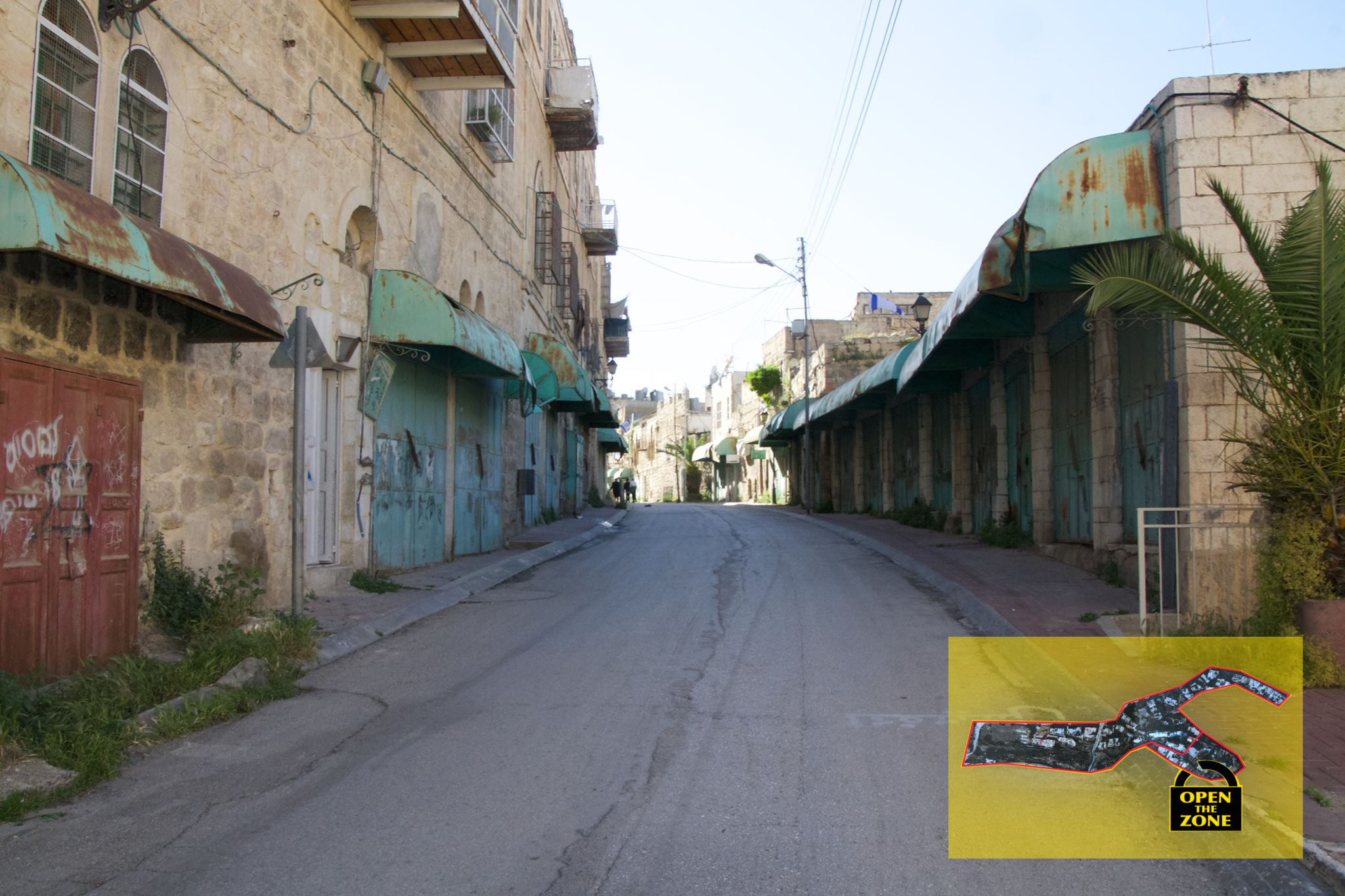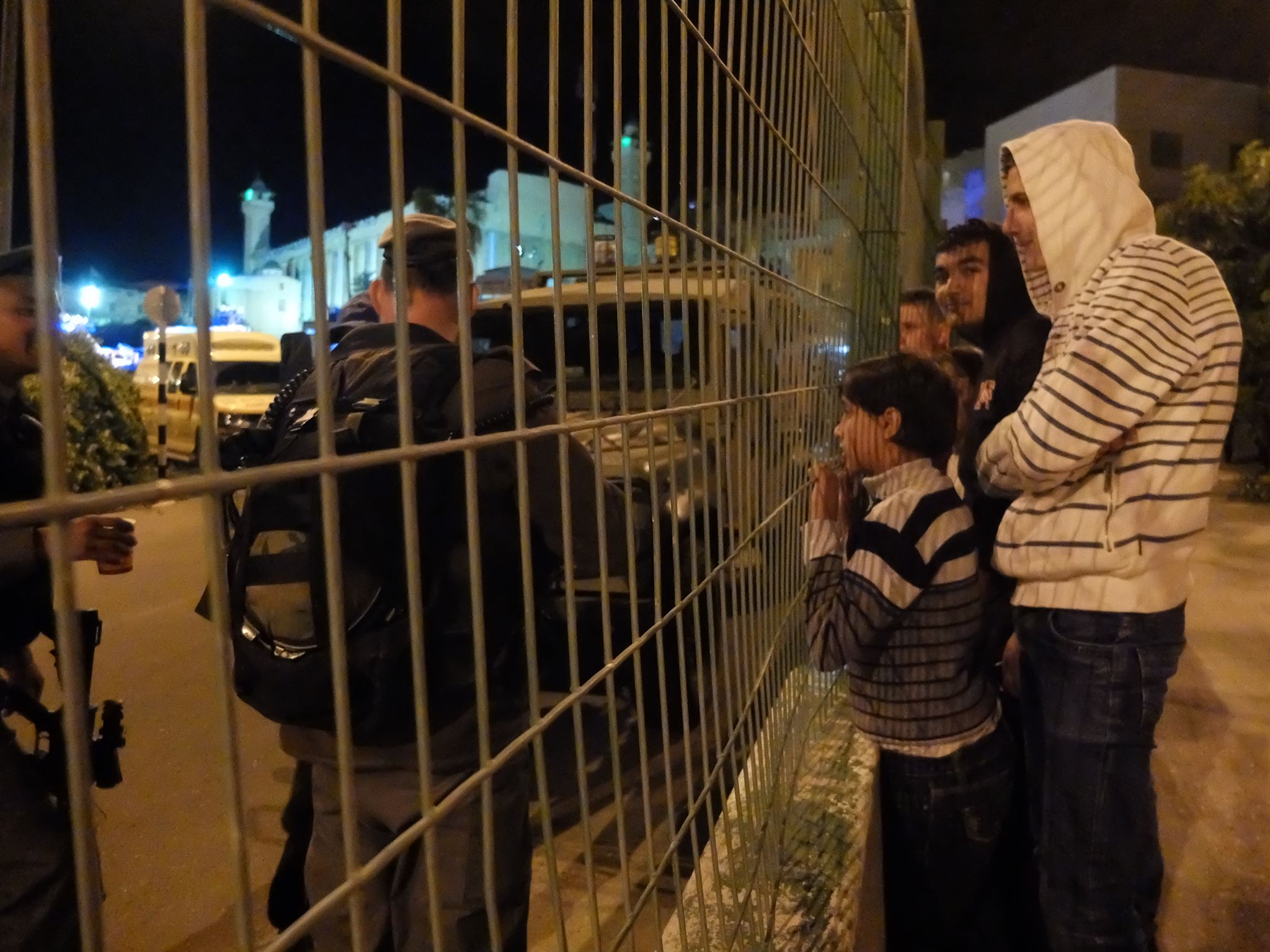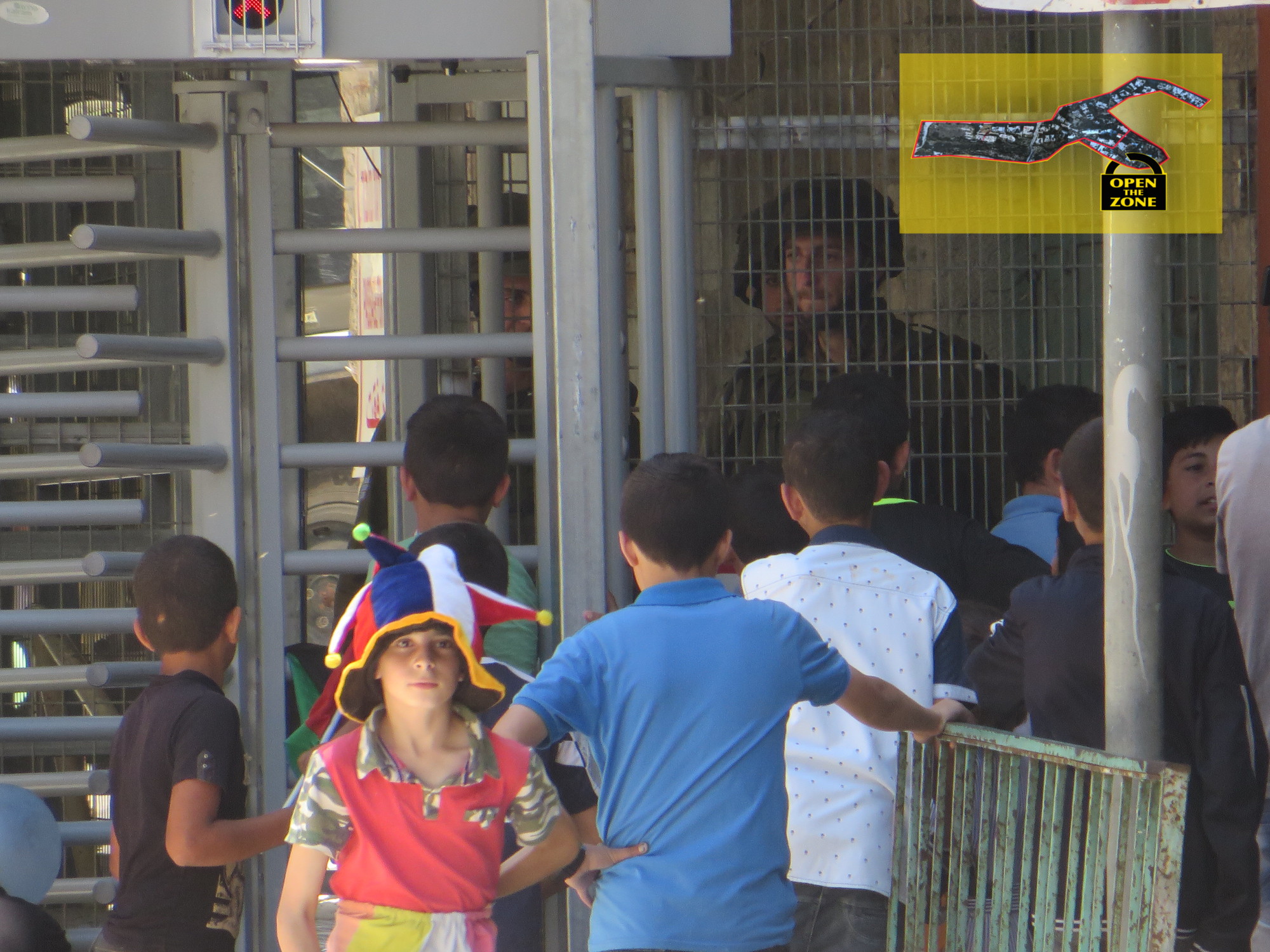Tag: Settlers
-
Al-Nakba day: The biggest crisis in the history of Palestine
15th May 2016 | International Solidarity Movement, al-Khalil team | Occupied Palestine Today, 68 years ago, the state of Israel was created on the Palestinian peoples’ home. The anniversary falls after a winter and spring with an escalation in violence and arrests of Palestinians, ever-expanding Israeli settlements in the West Bank and the Palestinian capital…
-
Celebrating Israeli Independence day from the other side of apartheid fence
13th May 2016 | International Solidarity Movement, Verena, Al Khalil team | Hebron, occupied Palestine Leaving the meeting I was searching for a safe way to go through the old City of Hebron alone, where there was a celebration of ”Israeli Independence day” going on. I wanted to reach my ISM team members who were already patrolling there.…
-
Open The Zone: press conference
13th May 2016 | Open the Zone campaign | Hebron, occupied Palestine On 12th May 2016, the Open the Zone campaign held a press conference in front of Shuahda checkpoint in Hebron – protesting the continuous collective punishment and denial of human rights to Palestinians in the ‘closed military zone’. The press conference was launched…



